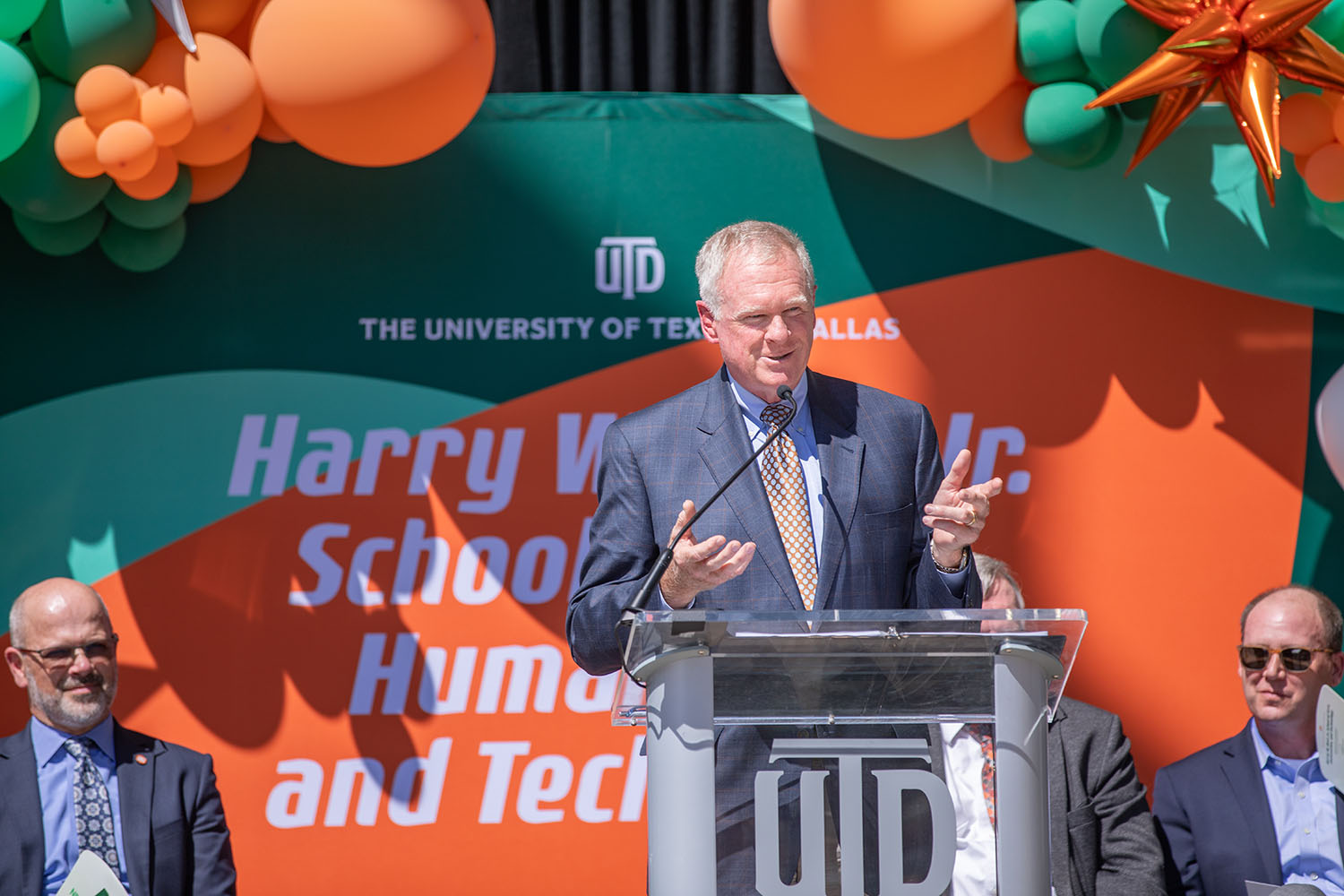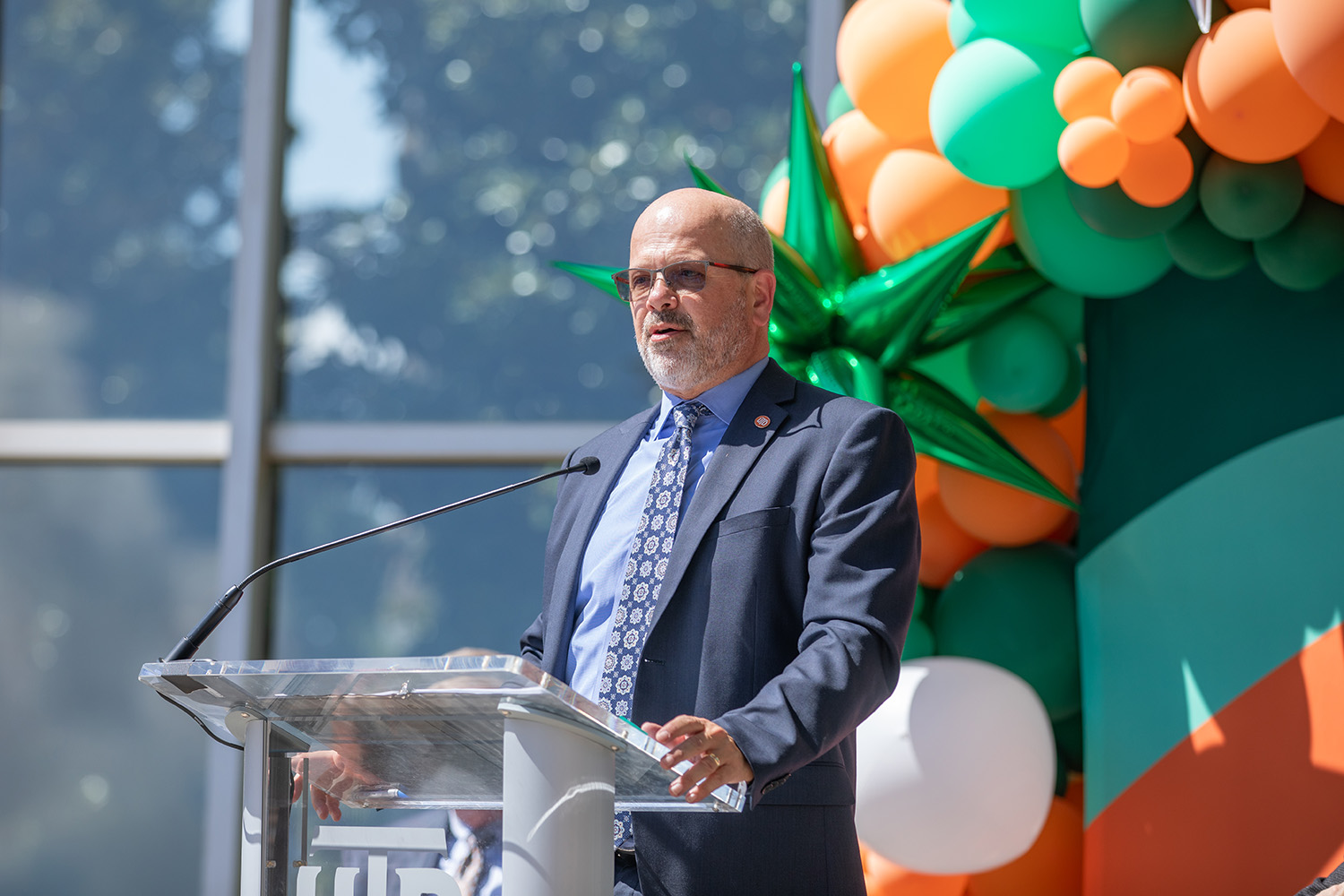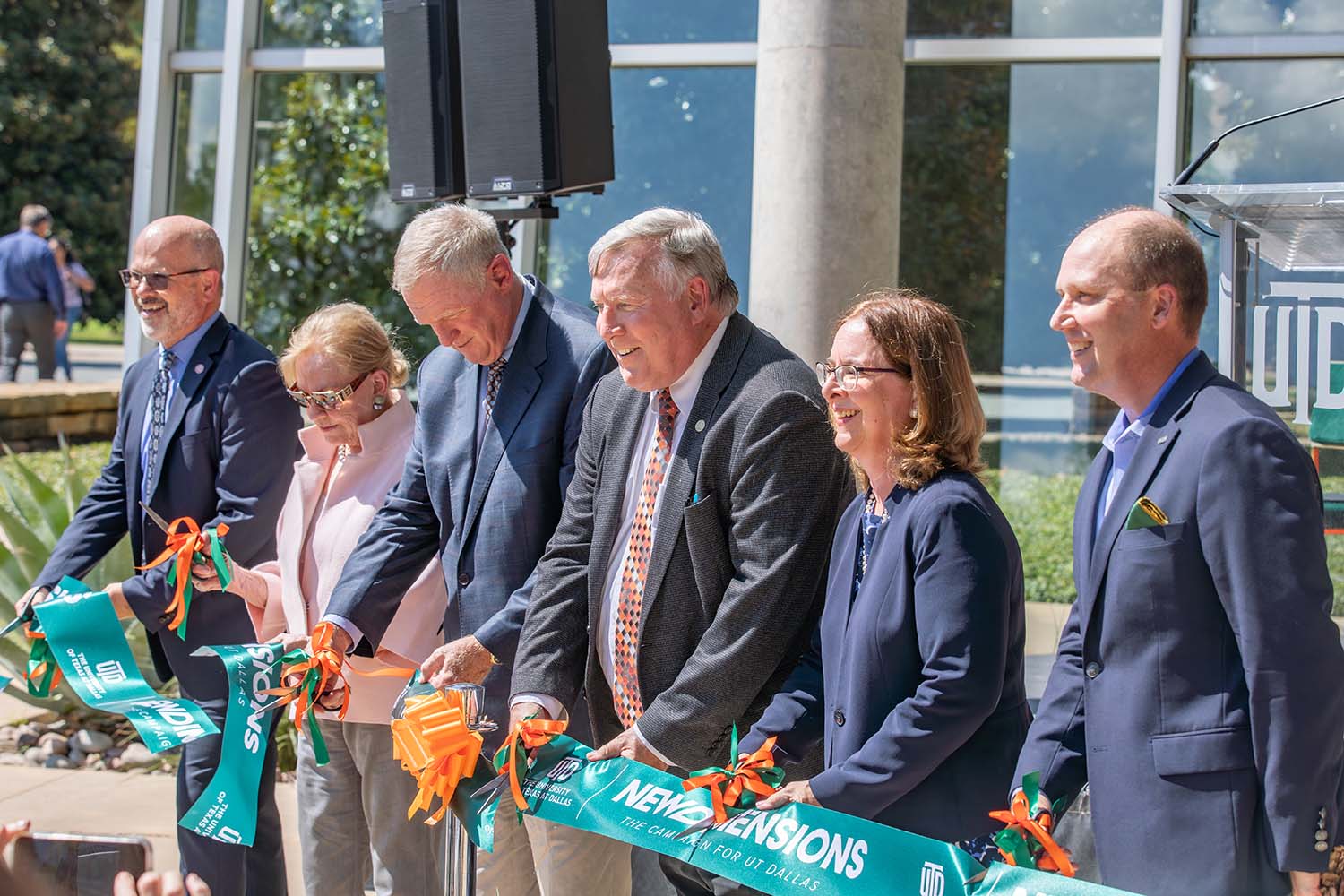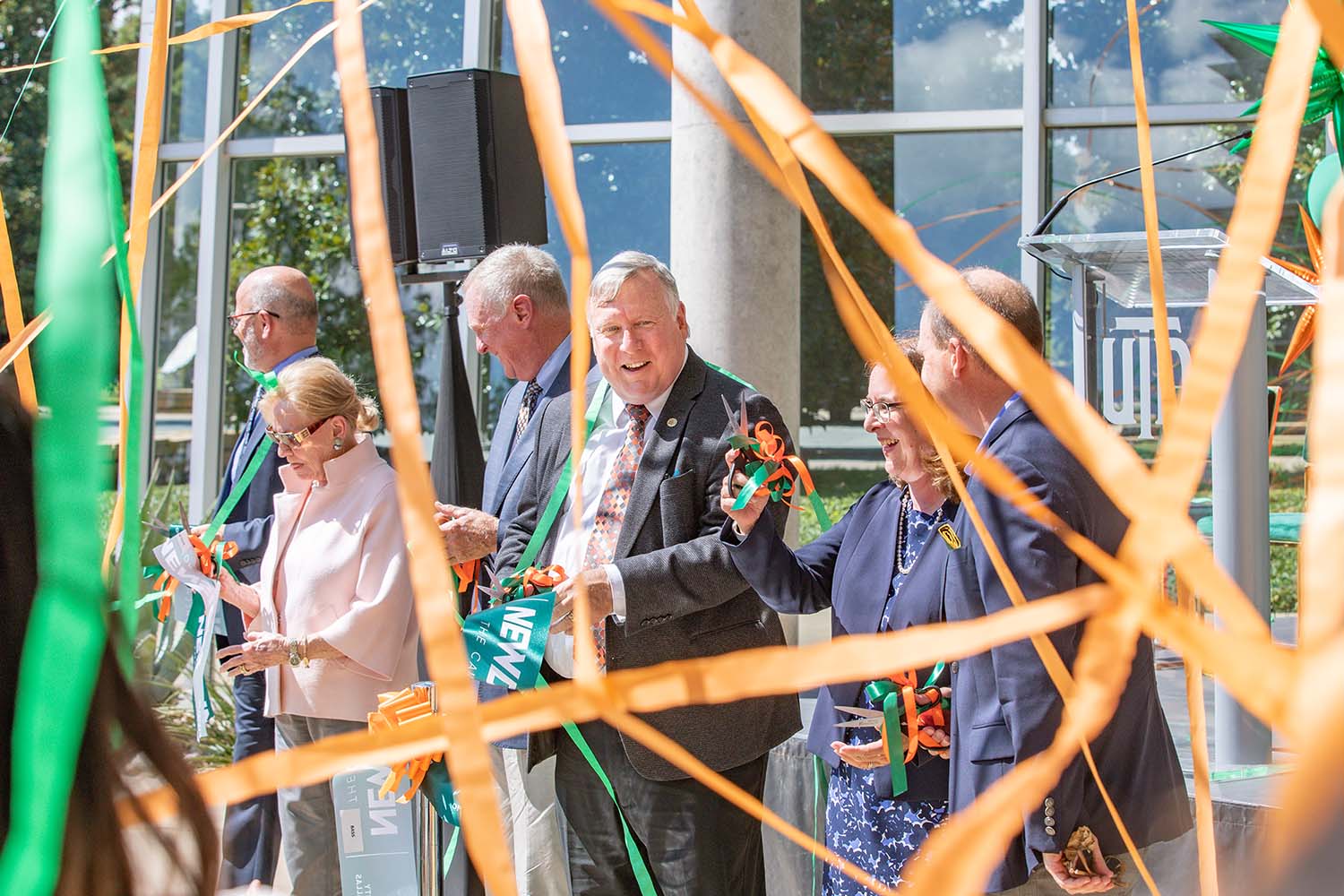Friends, faculty, staff and students celebrated a monumental step in the future of the arts at The University of Texas at Dallas on Sept. 28 during the dedication and naming of the Harry W. Bass Jr. School of Arts, Humanities, and Technology.
Last spring the Harry W. Bass Jr. Foundation made a landmark $40 million gift that will create new and expanded opportunities at the University for Comets as well as the surrounding community.

Provost Inga H. Musselman, vice president for academic affairs and the Cecil H. Green Distinguished Chair of Academic Leadership, expects the gift to increase the trajectory of innovation and growth of the arts at UT Dallas.
“We see innovation occurring at the intersection of art and technology,” she said during the dedication ceremony. “We have reached that intersection at the Bass School and are racing in new directions.”
A ribbon-cutting took place outside the Edith O’Donnell Arts and Technology Building and featured leaders from the Bass Foundation and UTD, as well as the University Pep Band, cheerleaders and members of the community.
Michael L. Calhoun, a Bass Foundation trustee, told attendees that the foundation’s focus has historically been in the areas of arts and education, and that this donation continued that emphasis.
“When this opportunity availed itself, it was a natural extension of our gifting over the years to get behind UT Dallas and participate any way we could,” he said. “We’re more than thrilled to have the [Bass] name associated with the arts, humanities and technology school, and we’re excited to see where this goes.”
“Thanks to the Bass Foundation, we look forward to making a statement about arts, humanities and technology, not only in our community, but throughout the world.”
Dr. Nils Roemer, dean of the Harry W. Bass Jr. School of Arts, Humanities, and Technology
Last year the School of Arts and Humanities, one of the University’s oldest schools established in 1975, and the School of Arts, Technology, and Emerging Communication, home of the first arts and technology degree in Texas, merged to form one larger school — now known as the Bass School.
UTD President Richard C. Benson, the Eugene McDermott Distinguished University Chair of Leadership, said that the Bass gift will energize the commitment to expand arts, humanities and technology at the University.
“The greatest universities explore the full scope of what it means to be human,” he said. “They investigate the great questions posed by the humanities. They expand the imagination through artistic study and practice, and open new horizons of expression by engaging with the newest technologies. The Bass School is where we will do all of these things and more.”
Dr. Nils Roemer, Bass School dean and the Arts, Humanities, and Technology Distinguished University Chair, said the gift will increase access for talented students, broaden opportunities to recruit and retain forward-thinking faculty, and support arts programs at the University.
Video
Learn more about the Harry W. Bass Jr. School of Arts, Humanities, and Technology and the $40 million gift in a video on YouTube.
“The faculty, staff and students at the Bass School are so excited about the future of our school,” said Roemer, who also directs the Ackerman Center for Holocaust Studies and holds the Stan and Barbara Rabin Distinguished Professorship in Holocaust Studies. “Thanks to the Bass Foundation, we look forward to making a statement about arts, humanities and technology, not only in our community, but throughout the world.”
A portion of the Bass gift also provides critical funding to accelerate Phase II of the Edith and Peter O’Donnell Jr. Athenaeum. The second phase, which is planned to be completed in 2026, will include a two-story, 53,000-square-foot performance venue with a 600-seat concert hall, choral and orchestra rehearsal rooms, classrooms and office space. It will become the home of arts students and Bass School music faculty.
Kyle Edgington PhD’13, vice president for development and alumni relations, noted that the Bass gift is one of the most significant philanthropic contributions to the University to date.
“The Bass School is a testament to the vision of our leadership and the transformative power of philanthropy,” he said. “[It] is the beginning of a new chapter filled with exciting possibilities for learning and artistic expression.”






